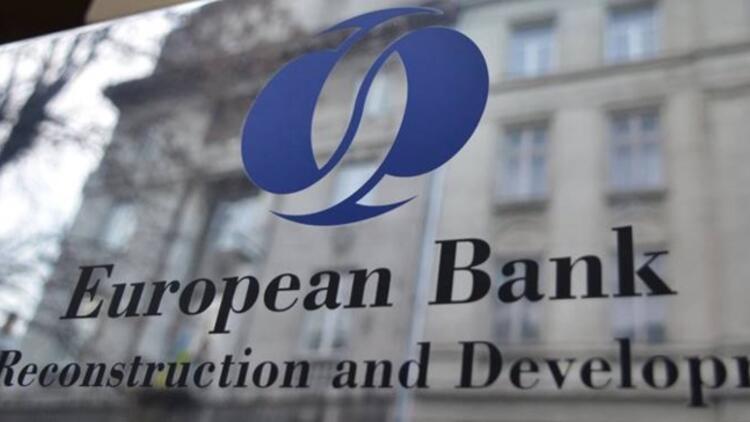
After achieving high investment volumes in challenging market conditions last year, the EBRD plans to increase its investment in Turkey in 2020 as the economy prepares to recover.
2019 has been a difficult and challenging year for the Turkish economy. It experienced a weakening of overall asset quality in the banking sector and a reduction in debt levels among creditors. The risk of sanctions and market instability undermined investor confidence, leading to unsatisfactory levels of public and private investment.
Within this context, the EBRD successfully provided € 1 billion of debt and equity financing for 35 projects in Turkey.
Arvid Tuerkner, EBRD Managing Director for Turkey, said: “In a challenging business environment, our business volume in Turkey in 2019 remained unchanged from the previous year. Last year we provided EUR 1 billion of financing in various sectors and were able to support our clients to ensure business continuity and growth opportunities. The vast majority of our investments were made in the private sector, and half of these investments were dedicated to Turkey’s sustainable development program, the country’s blueprint for implementing global development goals. investment in Turkey
Mr. Tuerkner noted that the EBRD anticipates the Turkish economy to recover in 2020: “As investors seek financing, we will aim to support even more investment projects that stimulate the economy, create jobs and improve people’s lives.
In 2020, the Bank will also aim to enlarge its Women in Business program and focus on attracting new investors under this initiative. It will maintain its involvement with the Turkish government to deploy energy efficiency technologies in schools and the liberalization of the railway sector. The EBRD will keep its focus on renewable energy projects and make an investment in Turkey in this field as well.
The Bank will also investigate opportunities for Islamic financial products and expects an increase in issues from Turkish companies. Its involvement will be in line with the Bank’s recently approved country strategy, which focuses on building economic sustainability, encouraging a knowledge-based economy, enhancing inclusiveness, and promoting the shift to a green economy.
A large part of this financing is expected to be in Turkish liras, as in 2019. About one-third of the Bank’s financing in 2019 was tied to the local currency and the development of local capital markets to support businesses in reducing foreign exchange risks.
One such loan in Turkish Lira, equivalent to US$100 million, to energy group Enerjisa Enerji, significantly contributed to the improvement of the capital market in Turkey through its link to TLREF, a new overnight risk-free benchmark rate that the EBRD had helped develop.
The EBRD celebrated its 10th year of operation in Turkey in 2019. Twelve billion has been invested in various sectors of the Turkish economy since 2009, with almost all of it in the private sector. The EBRD’s €6.7 billion portfolio in Turkey is the largest of the 38 countries in which the Bank invests. The EBRD is a major investor in Turkey.
In the energy sector, the Bank also supported the expansion of a geothermal power plant and invested in a stake in Ictas Holding’s renewable energy activities in 2019.
The EBRD’s equity-related transactions in Turkey focused on the technology sector, with investments in Modanisa, the online shop for Muslim women’s clothing, and the Obilet bus ticketing application, as well as others.
The Bank also provided incentives to Turkish exporters such as white goods manufacturer Arcelik and dried fruit and nut producer Isik Organic and May Seed, exporting sunflower seeds, maize, cotton, and beans.
In response to the request to support the improvement of port facilities, the Bank has financed four Turkish ports: an innovative logistics center to be developed by Arkas Holding in Kocaeli, Asyaport and the port of Tekirdag through loans – all three in the Marmara region – and the international port of Mersin in the south of the country by taking part in a Eurobond issue.
While bank loans continued to be tight, the EBRD also investigated new ways to increase financing for Turkish companies and supported the leasing company QNB Finansleasing and the factoring company TAM Factoring, as well as the extension of a risk-sharing agreement with Turkiye Sinai Kalkinma Bankasi (the Industrial Development Bank). Turkey or TSKB).
Besides, the Bank’s small business team launched 113 local and nine international consultancy projects with small and medium-sized enterprises (SMEs) in 20 provinces, helping them to improve their performance and growth. investment in Turkey in 2020
The EBRD achieved a record level of investment impact in all its regions in 2019, honoring its promise to enhance both the quality and quantity of its investments in 38 economies on three continents.
The Bank funded an unprecedented 452 individual projects, up from 395 a year earlier. Funding reached more than EUR 10 billion for the first time in the Bank’s history, rising from EUR 9.5 billion to EUR 10.1 billion.
EBRD funding for the green economy reached a record €4.6 billion or 46% of total business volume in 2019, underlining the EBRD’s strong support for the global climate agenda. They aim to continue their investment in Turkey in 2020 as well.
Source: https://www.ebrd.com/
ERAI Turkey, stay up to date with news from Turkey by visiting our blog and following us on our social networks: Linkedin – Facebook – Twitter – Instagram

